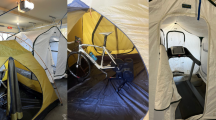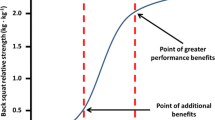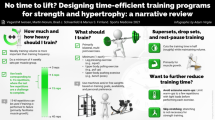Abstract
Purpose of Review
As sport climbing has become an Olympic sport and keeps gaining in popularity, there is growing interest in the role of diet and the effect of dietary supplements on climbing performance. The aim of this review is to provide an insight into the dietary intake of climbers and discuss ergogenic aids that could improve their performance.
Recent Findings
Limited information is available regarding the dietary intake and eating habits of climbers, and the studies conducted are few and far between. The diet of climbers is apparently suboptimal, with inadequate energy intakes often owning to insufficient carbohydrate consumption. Likewise, supplement use and ergogenic aids for climbing performance are largely unexplored. Several ergogenic aids have been suggested to improve climbing performance; however, only two have been examined directly on climbing-specific outcomes.
Summary
The dietary intake, eating behaviors, and supplement use in sport climbers are not well studied, and available information is most likely outdated. Considerably, more work is needed to determine which ergogenic aids can be beneficial for climbing performance.


Similar content being viewed by others
Abbreviations
- BCAA:
-
Branched-chain amino acids
- NZBC:
-
New Zealand black currant
- NO:
-
Nitric oxide
References
Papers of particular interest, published recently, have been highlighted as: • Of importance •• Of major importance
Michael MK, Witard OC, Joubert L. Physiological demands and nutritional considerations for Olympic-style competitive rock climbing. Cogent Med. 2019;6(1):1667199. https://doi.org/10.1080/2331205X.2019.1667199.
Giles LV, Rhodes EC, Taunton JE. The physiology of rock climbing. Sports Med. 2006;36(6):529–45. https://doi.org/10.2165/00007256-200636060-00006.
Macdonald JH, Callender N. Athletic profile of highly accomplished boulderers. Wilderness Environ Med. 2011;22(2):140–3. https://doi.org/10.1016/j.wem.2010.11.012.
• Lutter C, Tischer T, Schoffl VR. Olympic competition climbing: the beginning of a new era-a narrative review. Br J Sports Med. 2021;55(15):857–64. https://doi.org/10.1136/bjsports-2020-102035. A paper providing an overview of climbing and Olympic competition format.
Smith EJ, Storey R, Ranchordas MK. Nutritional considerations for bouldering. Int J Sport Nutr Exerc Metab. 2017;27(4):314–24. https://doi.org/10.1123/ijsnem.2017-0043.
Hatch T, Leonardon F. IFSC Rules 2022 2.0.1. International federation of sport climbing. 2022. https://www.ifsc-climbing.org/index.php/world-competition/rules. Accessed 10 Mar 2022.
Fanchini M, Violette F, Impellizzeri FM, Maffiuletti NA. Differences in climbing-specific strength between boulder and lead rock climbers. J Strength Cond Res. 2013;27(2):310–4. https://doi.org/10.1519/JSC.0b013e3182577026.
Laffaye G, Levernier G, Collin JM. Determinant factors in climbing ability: influence of strength, anthropometry, and neuromuscular fatigue. Scand J Med Sci Sports. 2016;26(10):1151–9. https://doi.org/10.1111/sms.12558.
Zapf J, Fichtl B, Wielgoss S, Schmidt W. Macronutrient intake and eating habits in elite rock climbers. Med Sci Sports Exerc. 2001;33(5):S72. https://doi.org/10.1097/00005768-200105001-00407.
Michael MK, Joubert L, Witard OC. Assessment of dietary intake and eating attitudes in recreational and competitive adolescent rock climbers: a pilot study. Front Nutr. 2019;6:64. https://doi.org/10.3389/fnut.2019.00064.
•• Monedero J, Duff C, Egan B. Dietary intakes and the risk of low energy availability in male and female advanced and elite rock climbers. J Strength Cond Res. 2023;37(3):e8–e15. https://doi.org/10.1519/JSC.0000000000004317. A recent cross-sectional study of dietary intakes and eating behaviors in Irish advanced and elite level climbers.
Chmielewska A, Regulska-Ilow B. The evaluation of energy availability and dietary nutrient intake of sport climbers at different climbing levels. Int J Environ Res Public Health. 2023;20(6):5176. https://doi.org/10.3390/ijerph20065176.
Joubert LM, Gonzalez GB, Larson AJ. Prevalence of disordered eating among international sport lead rock climbers. Front Sports Act Living. 2020;2:86. https://doi.org/10.3389/fspor.2020.00086.
•• Peoples GE, Scott Parker RA, Craddock J. Rock climbers’ self-reported dietary practices and supplement use in the context of supporting climbing performance. J Sport Exerc Sci. 2021;5(2):130–8. https://doi.org/10.36905/jses.2021.02.06. A cross-sectional study providing an insight into dietary intakes and supplement use in climbers of different levels worldwide.
•• Gibson-Smith E, Storey R, Ranchordas M. Dietary intake, body composition and iron status in experienced and elite climbers. Front Nutr. 2020;7:122. https://doi.org/10.3389/fnut.2020.00122. A well-designed cross-sectional study assesing the nutritional status of experienced and elite British climbers.
Sas-Nowosielski K, Wycislik J. Energy and macronutrient intake of advanced Polish sport climbers. J Phys Educ Sport. 2019;19(Suppl 3):829–32. https://doi.org/10.7752/jpes.2019.s3119.
•• Chmielewska A, Regulska-Ilow B. Evaluation of supplement use in sport climbers at different climbing levels. Nutrients. 2022;15(1):100. https://doi.org/10.3390/nu15010100. A recent study providing insight into the diet and supplement use in Polish climbers of different levels.
• Fryer S, Giles D, Bird E, Stone K, Paterson C, Balas J, Willems MET, Potter JA, Perkins IC. New Zealand blackcurrant extract enhances muscle oxygenation during repeated intermittent forearm muscle contractions in advanced and elite rock climbers. Eur J Sport Sci. 2021;21(9):1290–8. https://doi.org/10.1080/17461391.2020.1827048. A cross-over study examining the ergogenic effects of NZBC in advanced and elite male climbers.
Rigby B. Supplement guides. Climbing Nutrition. 2018. https://www.climbingnutrition.com/category/supplements/. Accessed 16 Mar 2022.
Sas-Nowosielski K, Wycislik J, Kaczka P. Beta-alanine supplementation and sport climbing performance. Int J Environ Res Public Health. 2021;18(10):5370. https://doi.org/10.3390/ijerph18105370.Parallelstudyexaminingtheeffectofbeta-alanineonclimbing-specificperformance.
Fryer S, Paterson C, Perkins IC, Gloster C, Willems MET, Potter JA. New Zealand blackcurrant extract enhances muscle oxygenation during forearm exercise in intermediate-level rock climbers. Int J Sport Nutr Exerc Metab. 2020;30(4):258–63. https://doi.org/10.1123/ijsnem.2019-0365.Cross-overstudyexaminingtheergogeniceffectsofNZBCinintermediatelevelmaleclimbers.
Berlanga LA, Lopez-Samanes A, Martin-Lopez J, de la Cruz RM, Garces-Rimon M, Roberts J, Bertotti G. Dietary nitrate ingestion does not improve neuromuscular performance in male sport climbers. J Hum Kinetics. 2023;87:47–57. https://doi.org/10.5114/jhk/161812.
Magkos F, Kavouras SA. Caffeine use in sports, pharmacokinetics in man, and cellular mechanisms of action. Crit Rev Food Sci Nutr. 2005;45(7–8):535–62. https://doi.org/10.1080/1040-830491379245.
•• Alvares TS, Oliveira GV, Volino-Souza M, Conte-Junior CA, Murias JM. Effect of dietary nitrate ingestion on muscular performance: a systematic review and meta-analysis of randomized controlled trials. Crit Rev Food Sci Nutr. 2022;62(19):5284–5306. https://doi.org/10.1080/10408398.2021.1884040. This systematic review and meta-analysis provides a comprehensive assessment of the effects of nitrate on muscular strength and endurance.
Kaviani M, Shaw K, Chilibeck PD. Benefits of creatine supplementation for vegetarians compared to omnivorous athletes: a systematic review. Int J Environ Res Public Health. 2020;17(9):3041. https://doi.org/10.3390/ijerph17093041.
Grgic J, Mikulic P. Effects of caffeine on rate of force development: a meta-analysis. Scand J Med Sci Sports. 2022;32(4):644–53. https://doi.org/10.1111/sms.14109.
•• Guest NS, VanDusseldorp TA, Nelson MT, Grgic J, Schoenfeld BJ, Jenkins NDM, Arent SM, Antonio J, Stout JR, Trexler ET, Smith-Ryan AE, Goldstein ER, Kalman DS, Campbell BI. International society of sports nutrition position stand: caffeine and exercise performance. J Int Soc Sports Nutr. 2021;18(1):1. https://doi.org/10.1186/s12970-020-00383-4. This article provides an overview of caffeine's use in sport and its ergogenic effects.
McArdle WD, Katch FI, Katch VL. Exercise physiology: nutrition, energy, and human performance. 8th ed. Philadelphia: Wolters Kluwer Health/Lippincott Williams & Wilkins; 2015. p. 543–93.
Tan R, Cano L, Lago-Rodriguez A, Dominguez R. The effects of dietary nitrate supplementation on explosive exercise performance: a systematic review. Int J Environ Res Public Health. 2022;19(2):762. https://doi.org/10.3390/ijerph19020762.Arecentsystematicreviewabouttheergogeniceffectsofdietarynitrateinrelationtoexplosiveexerciseperformance.
• Jones L, Bailey SJ, Rowland SN, Alsharif N, Shannon OM, Clifford T. The effect of nitrate-rich beetroot juice on markers of exercise-induced muscle damage: a systematic review and meta-analysis of human intervention trials. J Diet Suppl. 2022;19(6):749–71. https://doi.org/10.1080/19390211.2021.1939472. This systematic review provides insight into the effect of dietary nitrate (in the form of beetroot juice) on exercise-induced muscle damage.
• Hunt JEA, Coelho MOC, Buxton S, Butcher R, Foran D, Rowland D, Gurton W, Macrae H, Jones L, Gapper KS, Manders RJF, King DG. Consumption of New Zealand blackcurrant extract improves recovery from exercise-induced muscle damage in non-resistance trained men and women: a double-blind randomised trial. Nutrients. 2021;13(8):2875. https://doi.org/10.3390/nu13082875. This recent parallel study investigated the effect of NZBC extract on muscle damage and recovery after resistance exercise.
Saunders B, Elliott-Sale K, Artioli GG, Swinton PA, Dolan E, Roschel H, Sale C, Gualano B. Beta-alanine supplementation to improve exercise capacity and performance: a systematic review and meta-analysis. Br J Sports Med. 2017;51(8):658–69. https://doi.org/10.1136/bjsports-2016-096396.
Stegen S, Bex T, Vervaet C, Vanhee L, Achten E, Derave W. Beta-alanine dose for maintaining moderately elevated muscle carnosine levels. Med Sci Sports Exerc. 2014;46(7):1426–32. https://doi.org/10.1249/mss.0000000000000248.
Lanhers C, Pereira B, Naughton G, Trousselard M, Lesage FX, Dutheil F. Creatine supplementation and upper limb strength performance: a systematic review and meta-analysis. Sports Med. 2017;47(1):163–73. https://doi.org/10.1007/s40279-016-0571-4.
Lanhers C, Pereira B, Naughton G, Trousselard M, Lesage FX, Dutheil F. Creatine supplementation and lower limb strength performance: a systematic review and meta-analyses. Sports Med. 2015;45(9):1285–94. https://doi.org/10.1007/s40279-015-0337-4.
Jiaming Y, Rahimi MH. Creatine supplementation effect on recovery following exercise-induced muscle damage: a systematic review and meta-analysis of randomized controlled trials. J Food Biochem. 2021;45(10):e13916. https://doi.org/10.1111/jfbc.13916.
Grgic J, Grgic I, Pickering C, Schoenfeld BJ, Bishop DJ, Pedisic Z. Wake up and smell the coffee: caffeine supplementation and exercise performance-an umbrella review of 21 published meta-analyses. Br J Sports Med. 2020;54(11):681–8. https://doi.org/10.1136/bjsports-2018-100278.
Author information
Authors and Affiliations
Corresponding authors
Ethics declarations
Conflict of Interest
None.
Human and Animal Rights and Informed Consent
This article does not contain any studies with human or animal subjects performed by any of the authors.
Additional information
Publisher's Note
Springer Nature remains neutral with regard to jurisdictional claims in published maps and institutional affiliations.
Rights and permissions
Springer Nature or its licensor (e.g. a society or other partner) holds exclusive rights to this article under a publishing agreement with the author(s) or other rightsholder(s); author self-archiving of the accepted manuscript version of this article is solely governed by the terms of such publishing agreement and applicable law.
About this article
Cite this article
Okoren, L., Magkos, F. Physiological Characteristics, Dietary Intake, and Supplement Use in Sport Climbing. Curr Nutr Rep 12, 788–796 (2023). https://doi.org/10.1007/s13668-023-00511-x
Accepted:
Published:
Issue Date:
DOI: https://doi.org/10.1007/s13668-023-00511-x




